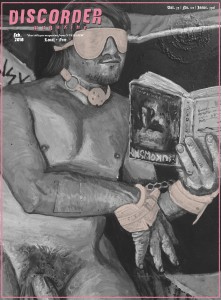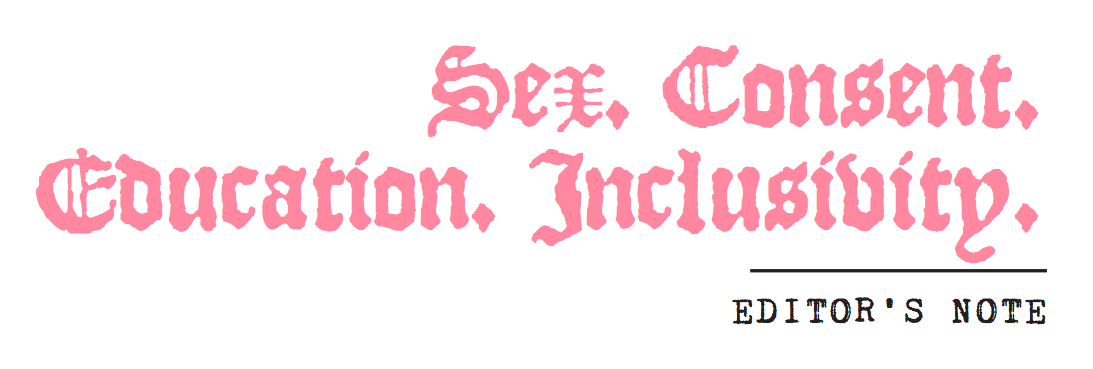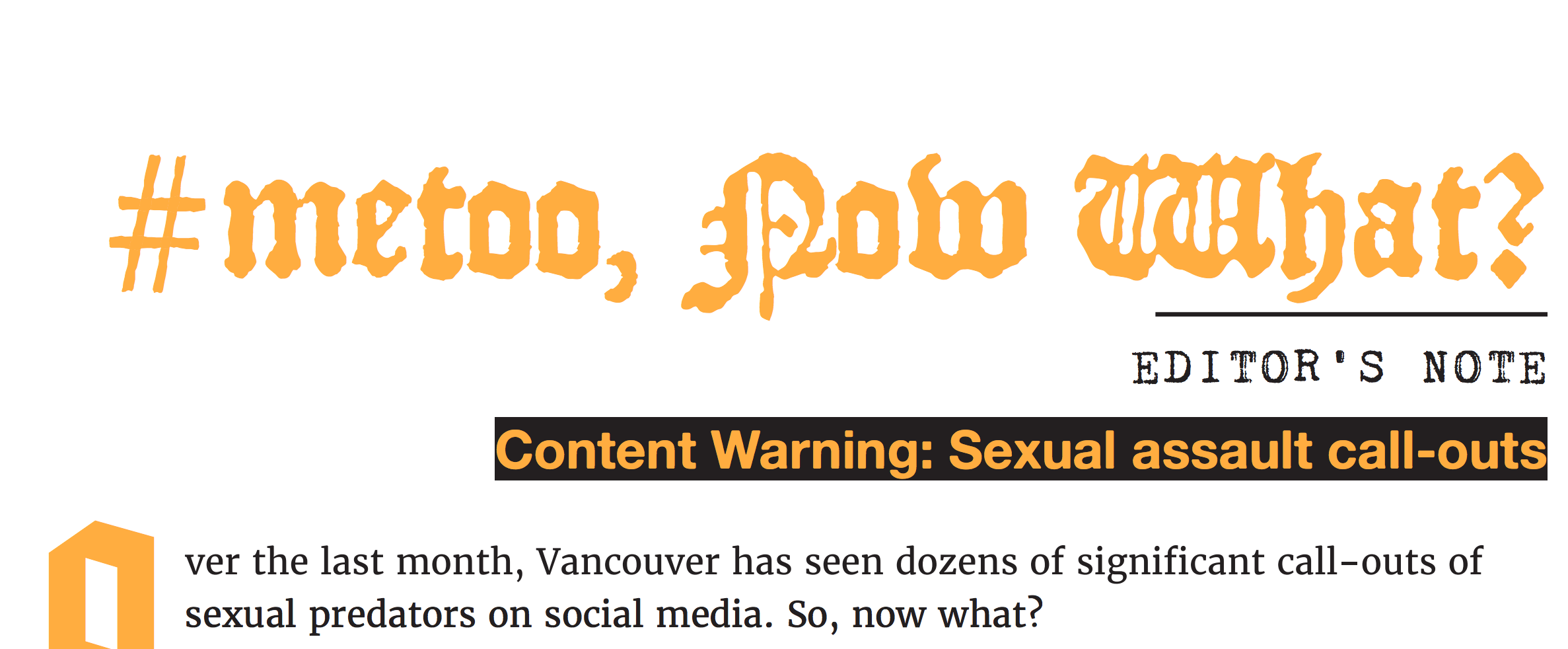You have probably guessed by Shannon Lester’s cover art, Discorder is playing with fire this month. And why not? Consumer culture has us passing by heart-shaped balloons in grocery stores, buying the Valentine’s Day versions of our favourite snacks, and scrolling by couple getaway ads in our Instagram feeds. It can be argued that the month of February has been hijacked by capitalist consumer agendas, but we at Discorder refuse to comply. In part, we reject the dominant heteronormative vision of what sexy is. We want to show you what we think is sexy: sex, consent, education and inclusivity.
This issue features the all-Trans burlesque and go-go party, Coconutz & Bananas; an article on bathhouses by local drag entertainer and writer, David Cutting; a profile on PACE, a society “by, with and for sex workers since 1994”; and an interview with soft punks, Necking.
We would also like to acknowledge that this is an important month for other communities:
February is Black History Month. CiTR 101.9FM will be honouring this with special weekly programming, which will include a piece on Hogan’s Alley by Lexi Mellish Mingo and Tintin Yang, based on Lexi’s article from November 2017. Keep your eyes open for other celebrations across the Lower Mainland.
February 14 will mark the 26th Annual Women’s Memorial March in Vancouver’s Downtown Eastside. It is a time to march together in remembrance of missing and murdered Indigenous women, to commemorate where they were last seen, and to commit to finding justice.
February 20 is the National Day of Action on the Overdose Crisis. The event was first reported on by Discorder in February 2017. In this issue, Oona Krieg gives us an update on the overdose crisis and drug policies one year later.

x
While I was editing this issue, I realized a secondary theme — stigma. Many of the articles this month address the shame that is projected onto peoples’ bodies, sexualities and interests. Through this collection of articles and reviews, the people interviewed in this issue and contributors themselves have done an incredible job of mapping ways to overcome the stigmas that cripple individuals and communities, and stall policy-making.
I hope you find this issue challenging, in a good way.
A+
BB





